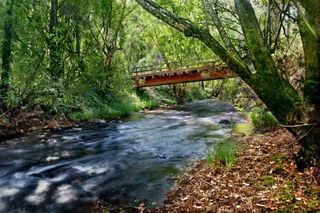We all take for granted that when we step out into this round, rotating world we live on, that we won’t go flying off. We’re held on by gravity. The same gravity that can kill you if you jump off anything of any height.
 This is a law…”The Law of Gravity.” As I have been preaching these last few months, there are laws that govern your work life, and laws that manage your happiness too…and they are connected.
This is a law…”The Law of Gravity.” As I have been preaching these last few months, there are laws that govern your work life, and laws that manage your happiness too…and they are connected.
Mihaly Csikszentmihalyi (great name for a researching Psychologist) set out 40 years ago to determine what really gives people true and repeatable enjoyment. What he found may surprise you. It’s actually work! Not any kind of work, but work where you lose yourself in the activity. I’m not just talking about enjoyable tasks, rather tasks that require accountability.
“What he found is that people of all ages, nationalities and interests in life report their involvement in activities in a similar way. In a nutshell ‘flow’ happens when we become so absorbed in an activity that we lose ourselves and our sense of time is altered. When we are engrossed we often have so little sense of ourselves that we do not feel happy – in fact we feel nothing. (Or indeed we may even experience physical discomfort as may be case for a mountaineer or athelete.) But afterwards we have such a strong sense of gratification that we construe the activity as enjoyable and satisfying and so such experiences contribute substantially to our feelings of happiness and well-being.
Activities which can induce flow are varied and numerous. It could be reading a book, playing a sport or having an engrossing conversation with a friend. Commonly it is something that we find challenging. This is why many people experience flow easily in competitive sports where challenge and feedback are intrinsic to the activity. If the talents of the players are mismatched – one is a beginner chess player, for example, and the other is a Grand Master then neither is likely to experience flow. For one opponent there is no challenge and for the other it is too daunting and so not easy to lose oneself in the activity.”
Want to duplicate this in your company?
Here are the eight ingredients of flow:
“1. The experience occurs usually when we are involved in tasks that we have a good chance of completing.
2. We are able to concentrate fully on the activity.
3. The task has clear goals.
4. The task is such that it gives us immediate feedback on how well we are doing.
5. Our involvement is ‘deep but effortless’ and this ‘removes from awareness the worries and frustrations of everyday life’.
6. There is a sense of exercising control over our actions.
7. Concern for the self disappears’ but paradoxically our ‘sense of self emerges stronger after the flow experience is over.’
8. We lose our normal sense of time – we can feel either that it has speeded up (and passed quickly) or slowed down.” (Centre for Confidence and Well-Being, 2006)
In other words, if you don’t build systems and ways to measure and compare those systems, you can’t experience flow. This serves as yet another law…one that reinforces the justification and value of good management and better accountability.

